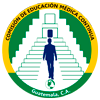Políticas editoriales
Enfoque y alcance
Belize Journal of Medicine es una publicación científica arbitrada fundada en el año 2011. Está dirigida a todos los profesionales de la salud, independientemente de su ubicación geográfica o condición social.
Publica sus contenidos en Acceso Abierto de forma inmediata y sin ningún tipo de restricción. Se interesa por todos los temas relacionados con las ciencias médicas y de la salud, incluida la historia y la educación.
No aplica ningún tipo de cargo por procesamiento editorial.
Misión
Divulgar resultados de investigaciones científicas que tributen al desarrollo de las ciencias médicas y de la salud en beneficio de los pueblos, especialmente en Centroamérica y el Caribe.
Visión
Ser una publicación de referencia para las ciencias médicas y de la salud.
Frecuencia: Semestral
Indexada en: Latindex (directorio), Periódica y Biblat
POLÍTICAS GENERALES
- Sobre los tipos de artículos
BJM publica fundamentalmente artículos de investigación originales, revisiones, reportes de casos, así como otros tipos de artículos de carácter científico en idiomas inglés y español. Ocasionalmente, publicará artículos especiales bajo las características definidas por el Comité editorial.
- Sobre los idiomas de publicación
BJM publica predominantemente artículos en idioma inglés provenientes de contribuyentes angloparlantes. Publicará además artículos en idioma español, y podrá encargar una traducción al inglés sobre artículos escritos en otros idiomas y de interés para la publicación. En tal caso, BJM se responsabiliza por la traducción.
- Sobre el proceso editorial
Los manuscritos serán enviados a través del sistema de gestión online de manuscritos exclusivamente. En todos los casos serán sometidos a una primera evaluación metodológica lo que determina su paso al sistema de evaluación por pares. Los documentos que no cumplan la etapa de primera evaluación serán devueltos.
Los documentos que ingresen al proceso de evaluación por pares aguardarán por un veredicto definitivo en un plazo no mayor de 90 días naturales. Se emiten solamente tres criterios: Aceptado, Aceptado con condiciones y No aceptado.
En el caso de los manuscritos Aceptados con condiciones, los autores dispondrán de un plazo de hasta 15 días para resolverlo. Pasado el periodo establecido, el documento será archivado y los autores enviarán una nueva versión como un nuevo envío. El comité editorial se reserva el derecho de dar sobreexplicaciones en relación con los manuscritos No aceptados.
Los manuscritos aceptados pasarán a las etapas de corrección y maquetación. Las versiones finales previa publicación serán aceptadas por sus autores, los cuales tendrán un plazo máximo de 72 horas para emitir su criterio. Pasado este término, se considerará el documento listo para su publicación.
Las consultas o inquietudes se tratan directamente con el autor de correspondencia.
El proceso editorial de un manuscrito desde su envío hasta su publicación no sobrepasará los 365 días naturales.
- Sobre la autoría
Según el Comité Internacional de Editores de Revistas Biomédicas (ICMJE) un autor es alguien que ha realizado contribuciones intelectuales sustantivas a un estudio publicado. En este sentido BJM reconoce como autores a todos los que se responsabilizan por el contenido científico expresado en el manuscrito. A tal efecto cada contribución llegará con una carta acompañante donde figuren los nombres y las firmas de cada uno de sus autores.
Cada autor se identifica con su número de registro ORCID como registro único del investigador en internet.
En el caso de los artículos de investigación, la autoría quedará explícita a través del uso de la Taxonomía CRediT (taxonomía de redes de colaboración académica), que hace transparente 14 roles de autoría:
- Conceptualización – Ideas; formulación o evolución de los objetivos y metas generales de la investigación.
- Curación de datos – Actividades de gestión para anotar (producir metadatos), depurar datos y mantener los datos de la investigación (incluido el código de software, cuando sea necesario para interpretar los propios datos) para su uso inicial y su posterior reutilización.
- Análisis formal – Aplicación de técnicas estadísticas, matemáticas, computacionales u otras técnicas formales para analizar o sintetizar datos de estudio.
- Adquisición de fondos – Adquisición del apoyo financiero para el proyecto que conduce a esta publicación.
- Investigación – Realización de una investigación y proceso de investigación, realizando específicamente los experimentos, o la recolección de datos/evidencia.
- Metodología – Desarrollo o diseño de la metodología; creación de modelos.
- Administración del proyecto – Responsabilidad de gestión y coordinación de la planificación y ejecución de la actividad de investigación.
- Recursos – Suministro de materiales de estudio, reactivos, materiales, pacientes, muestras de laboratorio, animales, instrumentación, recursos informáticos u otras herramientas de análisis.
- Software – Programación, desarrollo de software; diseño de programas informáticos; implementación del código informático y de los algoritmos de apoyo; prueba de los componentes de código existentes.
- Supervisión – Responsabilidad de supervisión y liderazgo en la planificación y ejecución de actividades de investigación, incluyendo la tutoría externa al equipo central.
- Validación – Verificación, ya sea como parte de la actividad o por separado, de la replicabilidad/reproducción general de los resultados/experimentos y otros productos de la investigación.
- Visualización – Preparación, creación y/o presentación del trabajo publicado, específicamente la visualización/presentación de datos.
- Redacción – borrador original – Preparación, creación y/o presentación del trabajo publicado, específicamente la redacción del borrador inicial (incluyendo la traducción sustantiva).
- Redacción – revisión y edición – Preparación, creación y/o presentación del trabajo publicado por los miembros del grupo de investigación original, específicamente revisión crítica, comentario o revisión – incluyendo las etapas previas o posteriores a la publicación.
El autor no pierde su condición en ninguna circunstancia.
No se admiten cambios de autoría después de publicado un documento. Cualquier cambio durante el proceso editorial y antes de la publicación será debidamente justificado y aprobado por todos los autores restantes mediante carta explícita.
- Sobre el acceso a los contenidos
Esta es una revista de acceso abierto, lo que significa que todo el contenido está disponible gratuitamente y sin costo para el usuario o su institución. Los usuarios pueden leer, descargar, copiar, distribuir, imprimir, buscar o vincular los textos completos de los artículos, o utilizarlos para cualquier otro propósito legal, sin pedir permiso previo al editor o al autor.
- Sobre los Derechos de autor
Los autores/as conservarán sus derechos de autor y garantizarán a la revista el derecho de primera publicación de su obra, el cual estará simultáneamente sujeto a la Licencia de reconocimiento de Creative Commons (CC BY-NC) que permite a terceros compartir la obra siempre que se indique su autor y su primera publicación en esta revista, sin utilizar este material para fines comerciales.
Los autores/as podrán adoptar otros acuerdos de licencia no exclusiva de distribución de la versión de la obra publicada (p. ej.: depositarla en un archivo telemático institucional o publicarla en un volumen monográfico) siempre que se indique la publicación inicial en esta revista.
Se permite y recomienda a los autores/as difundir su obra a través de Internet (p. ej.: en archivos telemáticos institucionales, repositorios, bibliotecas, o en su página web), lo cual puede producir intercambios interesantes y aumentar las citas de la obra publicada.
- Sobre el sistema de evaluación
BJM utiliza un sistema de evaluación por pares a doble ciego. Los manuscritos recibidos, una vez concluida exitosamente una primera evaluación metodológica, son enviados a dos árbitros o referees. En caso de existir opiniones contrarias, el Comité editorial convoca a un tercer evaluador, cuyo criterio permita llegar a una decisión definitiva.
El proceso de evaluación no demorará más de 90 días naturales contados a partir de la fecha del envío. Al término de este periodo, el autor recibirá una notificación con la decisión acordada sobre su trabajo.
Excepcionalmente el proceso puede tardar más del periodo establecido, lo cual será notificado al autor oportunamente.
- Sobre los conflictos de intereses
Los conflictos de intereses se identifican como el nivel de participación o involucramiento que tiene un autor (intereses privados) con los intereses que respaldan la investigación y que pueden influenciar su juicio o valoración.
BJM solicitará a los autores y revisores la declaración de conflictos de intereses con la publicación, sin que esto represente un elemento para la no aceptación del manuscrito.
- Sobre las violaciones éticas
BJM resuelve los problemas o conflictos éticos utilizando los algoritmos del Committee on Publication Ethics (COPE) disponibles en: https://publicationethics.org/guidance/Flowcharts
- Sobre la publicación de los números o fascículos
BJM publica con una frecuencia cuatrimestral (3 números al año en un solo volumen) con un mínimo de 8 artículos por cada número. El 65 % de los artículos publicados en cada número corresponden a artículos de investigación.
Cada número se publica dentro de su período de vigencia: número 1 (enero-abril), número 2 (mayo-agosto) y número 3 (septiembre-diciembre).
- Sobre la publicación de números especiales o suplementos
La publicación de números especiales o suplementos responde a la necesidad de comunicar específicamente sobre un tema relacionado con el área de cobertura de la revista. Se publican los textos completos de los manuscritos y su extensión es variable, de acuerdo con la decisión del Comité editorial.
El Comité editorial de BJM puede nombrar un equipo editorial ad hoc para la gestión de los números especiales o suplementos.
Se podrán publicar como máximo 2 números especiales o suplementos al año.
- Sobre las soluciones de errores después de la publicación
BJM no corrige errores después de la publicación de los artículos excepto cuando comprometen la correcta interpretación de los resultados de la investigación o del mensaje en el texto. En tal caso se utiliza el recurso de Retractación. En los casos menores, se utilizará la tradicional “fe de errata”, que será publicada en el siguiente número.
- Sobre las citas y referenciación de los documentos
BJM utiliza el estilo Vancouver para la referenciación de los documentos utilizados en las citas bibliográficas.
Las citas se colocan por orden de aparición, en superíndice y detrás del signo de puntuación.
BMJ promueve el uso preferente de referencias bibliográficas obtenidas de fuentes primarias de investigación científica (artículos de revistas, libros y tesis), así como de otras fuentes oficiales de probada validez (WHO, PAHO, etc). Asimismo, considerará la pertinencia del uso en los manuscritos de fuentes de información de contenido no validado por expertos para el desarrollo de la investigación.
Todas las referencias utilizadas serán estrictamente localizables en internet.
- Sobre la publicación de ensayos clínicos
Según el Comité Internacional de Editores de Revistas Médicas (ICMJE), un ensayo clínico es un proyecto de investigación que asigna prospectivamente personas o un grupo de personas a una intervención, con o sin grupos de control simultáneos, con el objetivo de estudiar la relación causa-efecto de una intervención relacionada con la salud.
Para la publicación de ensayos clínicos es imprescindible su registro en un sitio público. Se recomienda revisar el listado ofrecido por la OMS (https://www.who.int/clinical-trials-registry-platform/network/primary-registries). Los documentos se publicarán con el número de identificación obtenido de dicho proceso.
- Sobre el funcionamiento del Comité editorial
El Comité editorial de BJM tiene la responsabilidad de evaluar, decidir y publicar los artículos científicos enviados por los contribuyentes siempre y cuando cumplan con los requerimientos establecidos de calidad técnica y científica, así como de aspectos éticos y legales.
Está compuesto por un Editor Jefe como máximo responsable para el cumplimiento de la misión.
El Editor Ejecutivo vela por el flujo eficiente del proceso editorial y productivo, y garantiza la satisfacción de los contribuyentes.
Los miembros del Comité editorial pueden variar en número en dependencia de las necesidades explícitas de representatividad.
Todo el trabajo editorial se realiza utilizando el sistema automatizado de gestión editorial, lo que garantiza la necesaria transparencia y trazabilidad del flujo editorial.
La composición del Comité editorial incluye un 35 % como mínimo de destacados especialistas procedentes de otras instituciones extranjeras.
BJM utiliza todos los canales de comunicación posibles para mantener la interacción sistemática con todos los miembros del equipo editorial.
Cualquier cambio necesario en el funcionamiento de la publicación, será discutido en el seno del Comité editorial.
- Sobre detección de plagios o malas conductas
Esta revista utiliza un sistema electrónico (StrikePlagiarism) para la detección de coincidencias que puedan ser interpretadas como plagio u otra manifestación de mala conducta.
Ante una situación de plagio, se comprueba la veracidad del problema y se procede a rechazar el manuscrito. Si la detección ocurre luego de que el artículo ha sido publicado, se realiza una retractación del mismo. La entidad de afiliación del infractor es comunicada de la afectación. En casos más complejos, se siguen los protocolos establecidos por la COPE.
- Sobre la Ciencia Abierta
BJM está a favor de la transparencia de los procesos de investigación y la divulgación de los resultados científicos bajo los principios de la Ciencia Abierta.
- Sobre la apertura de los datos de investigación
BJM promueve la apertura de los datos de investigación, siempre y cuando el nivel de confidencialidad lo permita. Como parte del cumplimiento de los principios de la Ciencia Abierta, el autor podrá presentar sus datos de investigación en cualquiera de los servidores disponibles a nivel internacional a tales efectos, lo cual garantiza el cumplimiento de los principios FAIR (Localizables, Accesibles, Interoperables u Reutilizables).
Ocasionalmente, durante el proceso de revisión, también se podrán solicitar los datos primarios de investigación por parte de los revisores, lo que permitiría comprobar la transparencia y credibilidad de la investigación.
- Sobre la sustentabilidad de la publicación
BJM está patrocinada por el BIOMEDS Ltd. quien garantiza la renovación del Comité Editorial cada cuatro años. Los miembros del Comité Editorial son seleccionados por convocatoria pública para un periodo de cuatro años, los que podrán ser prorrogados en una sola oportunidad. Es prerrogativa del Comité editorial seleccionar un miembro que, por sus condiciones profesionales, lo hagan merecedor de formar parte del equipo sin participar en la convocatoria.
El Comité editorial podrá revocar la permanencia de cualquiera de sus miembros cuando este no cumpla con sus funciones adecuadamente o cometa alguna violación ética. En ese caso, el propio Comité Editorial puede decidir si es sustituido o se puede esperar a la nueva composición.
- Sobre la preservación de los archivos
La preservación de los archivos digitales es una necesidad prioritaria para BJM. La revista utiliza un sistema CLOCKS para la preservación de sus archivos digitales como medida de seguridad.
- Sobre depósitos de versiones de autoarchivo
El depósito de versiones de autoarchivo es responsabilidad de los autores, quienes podrán realizar la actividad utilizando cualquier repositorio institucional o de su preferencia y otorgando la debida mención a la publicación en la revista.
- Sobre los anuncios y promociones en la revista
Los anuncios y promociones comerciales estarán vinculados directamente con las temáticas de la revista, y son aprobados por el organismo patrocinador, quien posee los mecanismos necesarios para realizar las negociaciones.














